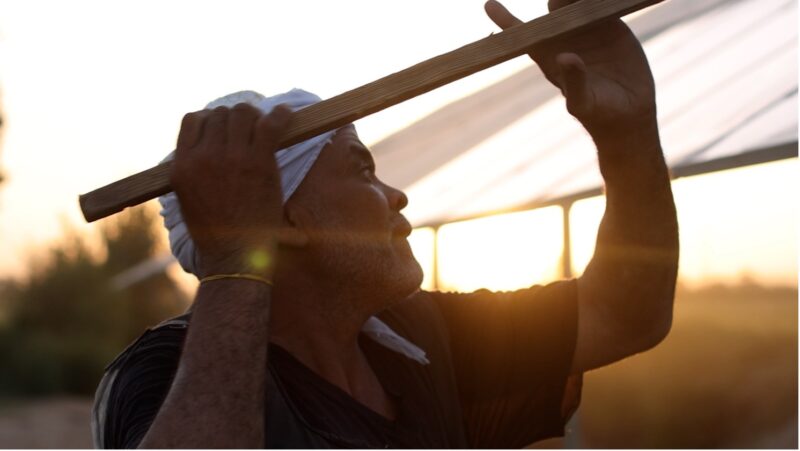Anwar Ahmad cleans the solar power array that now fully powers the irrigation system used for his land (Photo: WFP Egypt)
[Project Story] Innovative adaptation project pays off for Upper Egyptian farmers
Heat-tolerant seeds, crop diversification and improved irrigation are at the core of the project’s success.
Having implemented several interventions to combat the impacts of climate change, his crops are now able to guarantee the 52 year old food and income stability to provide for his wife and three children.
Egypt’s already hot and dry climate makes it extremely vulnerable to projected increases in annual temperature and drought and each year brings more burden to smallholder farmers and their families.
“Sowing and harvesting dates are no longer what they used to be,” Anwar says, “optimum planting times are now difficult to decide on for the traditional crops and varieties, and for the irrigation schedule.”
With farmers struggling to manage dryer soils, crops are undergoing elevated heat stress and are subsequently producing less yield.
An innovative climate adaptation project focussing on crop diversification, climate-resilient seeds, and early warning capacities, is helping small farms on the banks of the Nile River.
The programme, “Building Resilient Food Security Systems to Benefit the Southern Egypt Region,” is in its second iteration after building on the successful model of the 1st phase where the project capitalised on mobilising local community resources to achieve increased climate adaptation.
Financed by the Adaptation Fund and implemented by the United Nations World Food Programme (WFP), Phase 2 maintains the same participatory approach and focusses on community ownership and improved facilities to manage water for irrigation.
Continue reading the full original article on Climate Home News.



